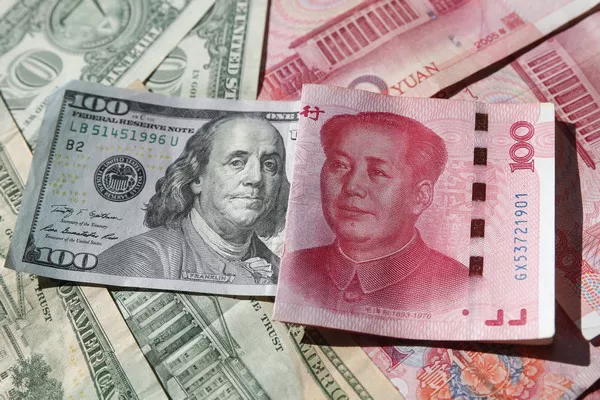In recent years, there has been a growing debate about the role of the Chinese yuan (CNY) in the global financial landscape. As the world’s second-largest economy, China has been taking significant steps to internationalize its currency, and this has raised questions about whether the yuan could potentially replace the US dollar (USD) as the dominant global reserve currency. This article delves into the factors contributing to the yuan’s rise, the challenges it faces, and whether it can truly replace the USD.
The Yuan’s Ascension
1. Economic Powerhouse
China’s rapid economic growth and transformation into an economic powerhouse have played a pivotal role in the yuan’s ascent. The country has consistently achieved high levels of economic growth, becoming the world’s largest exporter and attracting substantial foreign direct investment. This robust economic performance has led to increased use of the yuan in international trade.
2. International Trade
One of the key steps toward yuan internationalization has been the promotion of its use in international trade. China has entered into bilateral currency swap agreements with numerous countries, allowing trade to be settled in yuan instead of the USD. Additionally, the Belt and Road Initiative, a massive infrastructure development project, has facilitated the use of the yuan in countries participating in the initiative.
3. Financial Markets
China has made considerable efforts to develop its financial markets. The opening up of the Chinese bond market to foreign investors and the Shanghai-Hong Kong Stock Connect program have encouraged international investors to use the yuan in financial transactions. These developments have increased the yuan’s appeal as an investment currency.
4. Currency Reserves
China has been steadily increasing its holdings of foreign exchange reserves in yuan, signaling its confidence in its own currency. Furthermore, China has been advocating for a more prominent role for the Special Drawing Rights (SDR), which includes the yuan, in the International Monetary Fund (IMF).
The Challenges Ahead
1. Capital Controls
Despite China’s efforts to internationalize the yuan, it still maintains stringent capital controls. These controls restrict the ability of international investors to freely buy and sell yuan assets, which is a crucial factor in establishing a currency as a global reserve.
2. Convertibility
The yuan is not fully convertible, meaning that it cannot be easily exchanged for other currencies on the global stage. This is a significant obstacle to its widespread adoption.
3. Political and Economic Stability
The status of a global reserve currency requires not only a strong economy but also political and economic stability. China’s political system and concerns about its debt levels could affect the yuan’s global acceptance.
4. USD Dominance
The USD currently dominates the global financial system. It is the world’s primary reserve currency, and many commodities, including oil, are priced in dollars. Transitioning away from the USD would require a substantial shift in global financial infrastructure.
Will the Yuan Replace the US Dollar?
The idea of the yuan replacing the USD as the world’s primary reserve currency is undoubtedly ambitious, but it faces numerous challenges.
1. Gradual Transition
It’s essential to recognize that even if the yuan were to become a global reserve currency, the transition would likely be gradual. The USD’s dominance is deeply entrenched in the global financial system, and it would take years, if not decades, to shift significantly.
2. Global Acceptance
To challenge the USD’s supremacy, the yuan would need to be widely accepted by central banks and financial institutions worldwide. This requires not only a more open capital account but also a track record of stability and reliability.
3. Competing with the USD
The yuan would need to rival the USD’s role as a global trade currency and its use in pricing commodities like oil. This would necessitate not only a stable currency but also a shift in global trade dynamics.
4. Internationalization Efforts
China must continue its efforts to internationalize the yuan, relax capital controls, and enhance financial markets. Additionally, it needs to foster confidence in its political and economic stability.
5. Geopolitical Considerations
Geopolitical factors could influence the yuan’s internationalization. Tensions between China and the United States could hinder its progress.
In conclusion, while the rise of the Chinese yuan is noteworthy, it faces formidable hurdles on its path to potentially replacing the US dollar as the dominant global reserve currency. The USD’s long-established position, the challenges related to full convertibility, and geopolitical considerations make it a complex endeavor. Nevertheless, China’s determination and continued efforts to internationalize its currency suggest that the yuan will continue to play an increasingly significant role in the global financial landscape, even if full replacement of the USD remains a distant goal.


